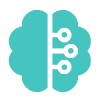The Dreamtime Way: DTLS emphasizes brain and behavioral science, growth mindset, habits of mind, social-emotional intelligence, and action on SDGs.
Our Approach

Brain and behavioral science
Brain and behavioral science

Entrepreneurial and Growth Mindset
Entrepreneurial and Growth Mindset

Habits of Mind
Habits of Mind

Social-emotional Intelligence
Social-emotional Intelligence

Awareness and action on SDG
Awareness and action on SDG

Genius hour
Genius hour
Brain and behavioral science
Self-awareness: The capacity for introspection and the ability to recognize one’s own emotions, thoughts, and behaviors, and how they impact others. It is the foundation for personal growth and self-improvement.
Personal Well-being: A state of holistic health and happiness, encompassing physical, mental, and emotional well-being.
Emotional Intelligence: The ability to understand and manage one’s own emotions and those of others, promoting effective communication and relationships.
Self Leadership: The capacity for taking charge of one’s own growth and development, setting and achieving personal goals, and leading oneself towards success.
Self Mastery: The process of developing mastery over one’s thoughts, emotions, and behaviors, leading to a sense of personal control and fulfillment.
Entrepreneurial and Growth Mindset
Positive: A mindset characterized by optimism, hope, and a focus on the good, even in the face of challenges.
Adaptable: The ability to change and adjust to new situations, being flexible and open to new ideas and experiences.
Proactive: A forward-thinking approach, taking initiative and acting in advance to shape one’s own circumstances and achieve goals.
Curious: A desire to learn and explore, characterized by a hunger for knowledge and a willingness to ask questions and seek answers.
Willingness to take risks: A readiness to embrace new challenges and venture into uncharted territory, even in the face of uncertainty.
Encouraging of effort over talent: A belief that abilities and qualities can be developed through dedication and hard work, rather than being innate or fixed.
Habits of Mind
Persisting: The ability to persevere and maintain focus, even in the face of obstacles or setbacks.
Managing Impulsivity: The capacity for self-control, avoiding impulsive behavior and making thoughtful decisions.
Listening to Others with Understanding and Empathy: The ability to truly hear and understand others, showing compassion and concern for their perspectives and feelings.
Thinking Flexibly: The ability to adapt one’s thinking and consider multiple perspectives, avoiding rigid thinking and being open to new ideas.
Thinking About Our Thinking: The capacity for metacognition, reflecting on one’s own thought processes and continually seeking to improve.
Striving for Accuracy and Precision: A commitment to accuracy and a desire to produce work of the highest quality, through careful attention to detail.
Questioning and Posing Problems: A habit of inquiring and seeking to understand, asking questions and posing problems to promote learning and growth.
Applying Past Knowledge to New Situations: The ability to transfer previously learned knowledge to new and novel situations, making connections and solving problems.
Thinking and Communicating with Clarity and Precision: The capacity for clear and effective communication, expressing thoughts and ideas in a concise and articulate manner.
Gathering Data Through All Senses: The practice of using all of one’s senses to gather information and gain a deeper understanding of the world.
Creating, Imagining and Innovating: The ability to generate new ideas, imagining what could be, and finding innovative solutions to problems.
Responding with Wonderment and Awe: A sense of awe and wonder, appreciating the beauty and complexity of the world, and seeking to understand it.
Taking Responsible Risks: The willingness to take calculated risks, balancing the potential benefits with the potential consequences.
Finding Humor: The ability to find humor and joy in life, even in difficult circumstances, promoting resilience and a positive outlook.
Thinking Interdependently: The capacity for collaboration, working together with others to achieve common goals and understanding the interconnectedness of all things.
Learning Continuously is the act of continuously seeking knowledge and improving skills, through self-directed study, new experiences, and feedback from others. It is a growth mindset that values personal development and lifelong learning.
Social-emotional Intelligence
Empathy: The ability to understand and share the feelings of others
Self-awareness: The ability to recognize one’s own emotions, thoughts, and behaviors
Self-regulation: The ability to manage one’s emotions, thoughts, and behaviors in a healthy and constructive manner
Social awareness: The ability to understand and respond to social cues and dynamics
Interpersonal skills: The capacity for metacognition, reflecting on one’s own thought processes and continually seeking to improve.
Conflict resolution: The ability to navigate and resolve conflicts with others in a positive way
Emotional intelligence: The ability to understand, manage, and express one’s emotions and to understand the emotions of others.
Awareness and action on SDG
Consciousness: A heightened sense of awareness and understanding of the SDGs and their importance
Responsiveness: A willingness and ability to take meaningful action to support the SDGs
Inclusivity: A commitment to ensuring that all members of society are included in the effort to achieve the SDGs
Collaboration: Working together with others to achieve the SDGs, including individuals, organizations, governments, and businesses
Sustainability: A focus on ensuring that progress towards the SDGs is maintained over the long-term
Equity: A commitment to ensuring that the benefits of progress towards the SDGs are shared equally among all members of society
Empowerment: Providing individuals, communities, and organizations with the resources and support they need to contribute to the SDGs.
Genius hour
Autonomy: Students have the freedom to choose their own projects and direct their own learning.
Creativity: Students are encouraged to use their imagination and take risks in their projects.
Curiosity: Students are encouraged to explore their interests and seek out new knowledge.
Passion: Students are empowered to pursue their passions and interests.
Empowerment: students feel supported and encouraged in their efforts to pursue their interests.
Empowerment: Students feel supported and encouraged in their efforts to pursue their interests.
Skill-building: Students have the opportunity to develop new skills and improve existing ones through their projects.
Innovation: Students are encouraged to think outside the box and find unique solutions to problems.
Collaboration: Students may work together on projects or share their knowledge and experiences with one another.

